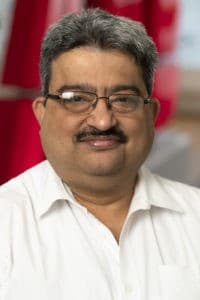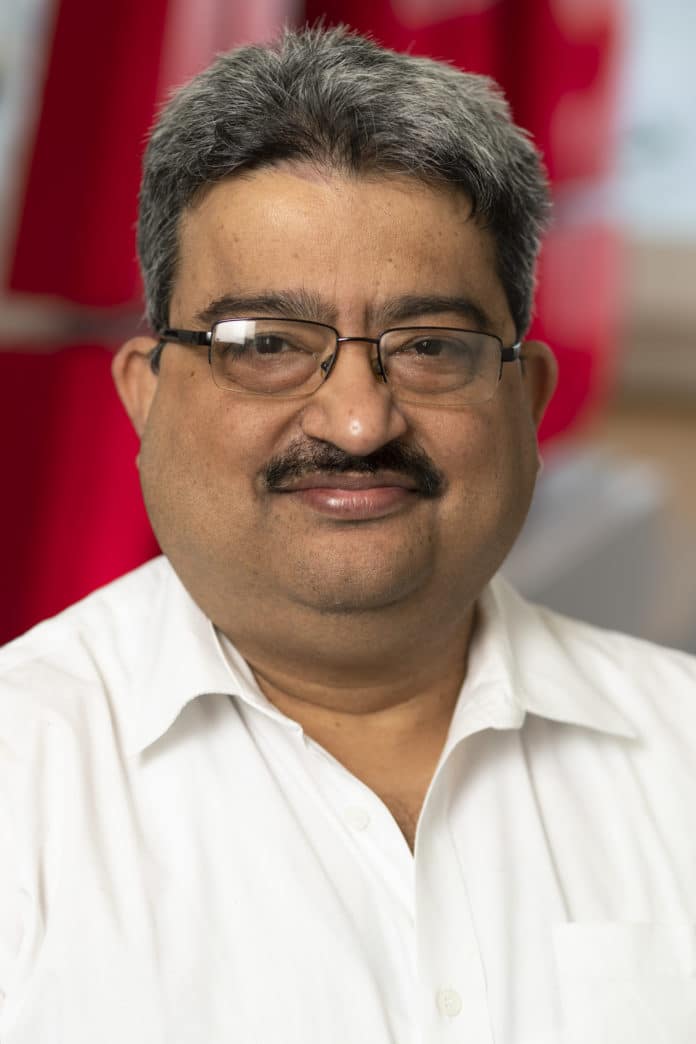Of all of the influences on how we live and work, the one that’s having the greatest effect is undoubtedly the Internet of Things (IoT). Rajarshi Banerjee, head – customer experience, innovation and collaborative operations, ABB Ability Innovation Center in an interaction with Electronicsforu.com Network shares his thoughts on how IoT is all set to bring in a transformative wave in the next few years. Excerpts follow…

Q) Many opine that IoT is just a buzzword that industry Gurus have coined to create hype? Do you agree with that line of thought?
The Internet of Things is here to stay. To say that IoT is a buzzword is completely self-defeating. Even as we converse, thousands of additional devices are getting connected to the Internet. What started as a digitization initiative, primarily by the finance sector, now encompasses every facet of the society, economy, and geography. Of course, how the huge amount of data thus being generated in the Internet zones (we love to call them Public Clouds) are and can be gainfully utilised through processing, analytics and remote services are yet to emerge fully. And I daresay, this transition will continue for a decade at least till the current phase of technology stabilizes while new technologies that are yet to come in the productized phases will emerge to take center stage.
Of course, in the process, some of the current initiatives and commercial offerings will wither out while some others emerge strong and stable – not always purely on the technology aspects, as much as the market positioning and useability aspects too. So to me, we have entered a phase of rapid IoT multiplication and the next decade might very easily be identified as the decade of IoT by posterity.
Q) In your opinion, is the Government of India (GoI) playing any significant role in expanding the IoT market right now? If yes–how?
I would say GoI has been playing a very important and proactive role in the development of IoT in India. There are multiple aspects through which IoT is getting a fillip in the country. The first is the GoI push for digitization of services and identities. That has in a very short time span connected a vast majority of Indians through Aadhar, mobile apps and similar which is nothing short of revolutionary.
The impetus on online transactions including patronizing the many market place platforms have similarly created a huge market for IoT based devices and applications. The focus of having connected and intelligent infrastructure – starting with smart cities and now being extended to other infrastructure – have also similarly created a very big present market and with the potential of humongous growth. I personally believe, the initiatives like AI for all, smart MSMEs, smart medicine, smart agriculture and smart education that the GoI is pursuing will create one of the largest IoT markets anywhere in the world here in India.
The other crucial gap that GoI has already identified and are taking a very holistic approach in solving is the skill gap. The fact that the current curriculum, as well as a vast majority of work experience, do not commensurately represent the needs of the hour is evident. GoI is perhaps one of the first in the world to extensively define IoT job descriptions as part of the National Skills Development Authority initiatives and have also expeditiously finalized the same.
This seminal document will now become the benchmark and yardstick for recruitment as well as redefining the course contents in the various educational institutes in India. And the required backend course contents will be uploaded in the Future Skills platform also of GoI. Done with strong industry participation through NASSCOM and ZINNOV, ABB has played a very significant role in defining these standards and contents, putting skin in the game for next-gen human resources development.
Q) What are your expectations from the GoI in terms of the initiatives they should take to make India an IoT superpower?
Well, I think the GoI is doing its bit in evangelization and adoption. I would much rather put onus on the investors here to look beyond the traditionally defined industry pillars that determine the GDP, KPIs etc and rather turn focus on to the already available technologies of AI-based applications, manufacturing etc, 3D printings to slowly replace conventional manufacturing, connected e-mobility taking over from current fossil fuel fleets and significant upskilling and upscaling of education + health services too. The GoI can consider deep concessions the way were given for IT ITES sectors some time back in these advanced technology areas that will attract investments from home and abroad and give a strong fillip to the IoT sector to balance services – with something more connected and hardware-centric, ensuring that the growth thus achieved also provides livelihoods to our millions.
Another crucial aspect for India is the cost. The amount of data that the industry is consuming is already choking systems at a country level and this is only going to go up in volume. Of course the data cost in India is now minimal – so it is almost demonetized and democratized for retail customers. The cost of commercial cloud platforms though remains unaffordable beyond a point. So the Government has to step in with policies and strategies to demystify and demonetize this very important building block of an IoT ecosystem.
Q) Are you satisfied with the rate of deployment of IoT solutions in India?
I would tend to say yes, but given our size and complexity as a country so vast and populous i.e, almost a fifth of the total humanity, we are doing a commendable job.
Q) How do you see the IoT market evolving in the next 2-3 years?
I see the next wave of IoT adoption especially in the areas of agriculture, education and health care. The other area would be of course the massive projects embarked upon by governments and industries. The focus would be as much on connectivity as on analytics on the data thus accumulated and aggregated. What I think is that we will get to see much more accurate predictions and foresights which will improve the efficiency, productivity or coverage, as the cases of applications may be, till we reach the next curve of saturation that will necessitate another technology leap within 5 years
Q) Which industry segments do you believe will be driving a larger chunk of demand? Why?
I would say, in the case of industry, it will be rather all across as the needs for connectivity and predictability are now an integral part of any business planning. So to distinguish one vertical from another will be futile at this point of time
Q) What’s your bigger challenge–acquiring customers or acquiring talent? What’s your strategy in resolving the same?
Definitely talent acquisition, development and retention form the biggest challenge of this sunrise industry. There is no one size fits all solution that we can think of. But of course, expanding the talent pool and evangelization of concepts right at the students’ level help.
These are areas we heavily invest in – both in the external ecosystem of educational institutions, trade and government bodies etc as well as internally to our employees motivating them to reskill and upskill. From collaboration with NITI Aayog to the IITs and NITs, providing digital tools in government technical institutes and setting up our own ABB PowerTEC institute for training, we have a host of initiatives to support various formats of training.
Q) How do you see your IoT-related business growing in the next few years both in terms of your business?
IoT and by corollary digitalization is one of the biggest focus areas for our company. While we are unable to specify a number here for confidentiality reasons, suffice to say half a decade down the line IoT based software-enabled business will constitute a very significant part of our portfolio.
Q) What’s your strategy to create a differentiation for your solutions vis-a-vis your competitors?
We have a strong legacy of processes and products. We have been a pioneer in industrial IT and automation. And what we have been dealing with for the last decades may safely be termed as Intranet of Things – where we were connecting devices and processes to the proprietary Intranet of our customers. These remain the foundations of our business for long. What we are now adding is a defined IT layer on top to bring in both Edge and Cloud solutions to complement our already formidable IoT solutions. With these and aided by emerging new innovative business models, we believe that we will be able to differentiate our offerings from many others, given the backdrop of our decades of legacy knowledge and experience feeding into the AI algorithms of today.
Q) Any innovative strategy being planned or implemented by your team to create demand for your solutions amongst customers or channel partners?
There are obviously many initiatives. One key initiative is named Ability Customer Experience. This is at an exploratory phase of our understanding of our customers’ requirements and the customers’ understanding of the ABB portfolio. We adopt various Lean, Agile and Design Thinking methodologies to engage proactively with the customers in a listening mode more than anything else and co create solutions for the customers’ unique problem statements. This approach is highly appreciated by the customers.
Another mention can be made of our well defined digital service delivery model through what we call Collaborative Operations Center, which serves digital services to our customers across geographies in multiple verticals and including fleet manage of ocean-going vessels. These are service models that have matured over decades of experience – including using Sat Phones etc – that are now being adopted to the Cloud environment with provisions of strong security layers
These are but representative of the many initiatives that we have taken.
Q) Who is the key decision-maker for you–the technology decision-maker or the business decision-maker?
Again, there is no one size fits all reply for this. The decision-making pattern heavily varies across industries and even within the same industry, from one customer to another. However, whosoever decide/s, it’s always on the basis of RoI and productivity improvements guaranteed.
Q) Have you come across any successful deployment of IoT in India that’s worthy of being noticed by other decision-makers?
At the public level, Aadhar is obviously the example to talk home about. Digitally connecting more than 1.2 billion people and linking this digital data to myriad transactions, benefits etc is a humongous task. India has achieved this feat indigenously and that’s not a mean task to achieve.
At ABB also, we have delivered some path-breaking solutions using our sensors to digitize the parameters of assets and processes while our software solutions to analyse and optimize these assets’ performance and process efficiencies, as the cases may be, to significantly improve the overall equipment effectiveness (OEE) of our customers while optimizing and reducing energy consumption and carbon footprints. The assets thus monitored include large transformers, high and low voltage motors, robots, controllers while processes include cement, steel, automotive, food and beverage, etc.
Q) How would you describe your solutions to a non-technical decision-maker at the clients’ end?
Most people in the industry segment are aware of ABB and our offerings, however, for a non-technical decision-makers, my personal recipe is to identify any everyday example which the person may be using. Smartphones are the most easy target and the apps thereon based on the person’s interest. I use it as a base and foundation to build a story that ultimately encompasses the solution/s we are trying to advocate for adoption.









